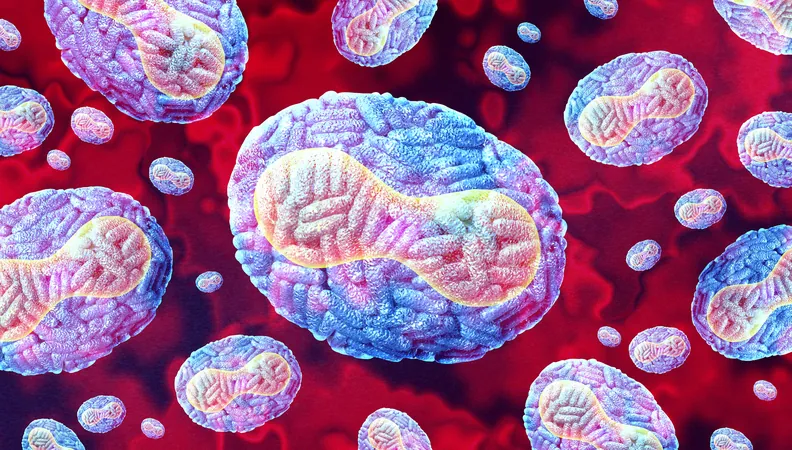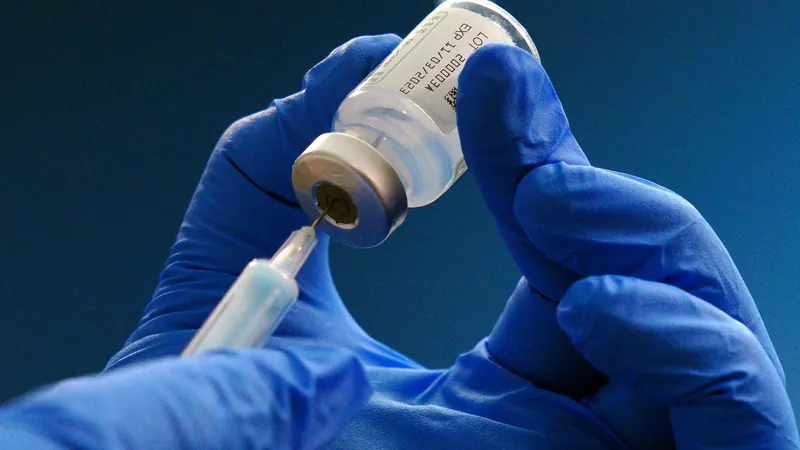
Breakthrough Discovery: Three Antibodies That Could Revolutionize Mpox Treatment!
2025-09-03
Author: Daniel
A Game-Changing Discovery for Mpox Treatment
Exciting news from researchers at Mount Sinai! They have identified **three powerful monoclonal antibodies** that effectively target mpox (monkeypox) and prevent severe disease. This groundbreaking finding positions these antibodies as frontrunners for much-needed therapeutic development.
How It Works: The Science Behind the Antibodies
Published in the prestigious journal **Cell**, the study reveals that these antibodies, derived from an individual who previously battled mpox, target a crucial protein known as **A35**. In laboratory experiments, the antibodies not only **stopped the virus's spread** but also protected rodents from severe illness, effectively preventing fatalities. Even more compelling, patient samples showed that those who had endured mpox naturally produced high levels of these protective antibodies, correlating with milder symptoms and fewer hospital admissions.
Urgent Need for Effective Treatments
Mpox has emerged as a significant global health threat following a worldwide outbreak in 2022. This virus, closely related to smallpox, is primarily spread through direct contact, causing symptoms like rash, fever, and swollen lymph nodes. While most people recover, severe cases can lead to devastating scarring or even death.
Despite repeated alerts from the World Health Organization—including two declarations of mpox as a public health emergency since 2022—approved treatments remain elusive. Current clinical trials for the leading therapy have fallen short of demonstrating effectiveness, underscoring the urgent demand for alternatives.
Insights from Previous Research
Motivated by this urgent need, the team at Mount Sinai built upon prior research from 2023, which demonstrated that human antibodies targeting the A35 viral protein were significantly elevated in response to mpox infection. Dr. Camila Coelho, an Assistant Professor of Microbiology at Icahn Mount Sinai, emphasized, **"We believe these antibodies are likely to offer high protection against various orthopoxviruses, given their genetic similarities."**
Why These Antibodies Are Promising
What's particularly remarkable about this discovery is the antibodies' binding site. They attach to a **conserved region of A35** that remains stable across the orthopoxvirus family, making them less prone to immune escape. This robustness marks them as prime candidates for therapeutic development.
Dr. Raianna Fantin, the study's first author, highlighted that this is the **first report** showcasing a human antibody linked to an mpox virus protein, providing a detailed roadmap of the virus's vulnerabilities.
Looking Ahead: The Path to Clinical Use
The Icahn School of Medicine has even patented these promising antibodies, underscoring their potential in clinical applications. However, researchers acknowledge the journey has just begun. Rigorous preclinical safety evaluations and subsequent human trials are necessary steps before these antibodies can become available as treatment.
Currently, the research team is focusing on two critical avenues: propelling the antibodies through further testing and utilizing their findings to inform future strategies against mpox and similar viruses. Their dual approach not only aims to bring a treatment for mpox to the forefront but also lays the groundwork for addressing related viral threats.
A Vital Step Forward
As mpox cases continue to emerge worldwide, the discovery of these targeted antibodies offers a **hopeful pathway** toward effective therapies. This groundbreaking research could redefine our fight against mpox and inspire new advancements in viral treatments.




 Brasil (PT)
Brasil (PT)
 Canada (EN)
Canada (EN)
 Chile (ES)
Chile (ES)
 Česko (CS)
Česko (CS)
 대한민국 (KO)
대한민국 (KO)
 España (ES)
España (ES)
 France (FR)
France (FR)
 Hong Kong (EN)
Hong Kong (EN)
 Italia (IT)
Italia (IT)
 日本 (JA)
日本 (JA)
 Magyarország (HU)
Magyarország (HU)
 Norge (NO)
Norge (NO)
 Polska (PL)
Polska (PL)
 Schweiz (DE)
Schweiz (DE)
 Singapore (EN)
Singapore (EN)
 Sverige (SV)
Sverige (SV)
 Suomi (FI)
Suomi (FI)
 Türkiye (TR)
Türkiye (TR)
 الإمارات العربية المتحدة (AR)
الإمارات العربية المتحدة (AR)